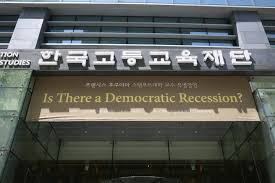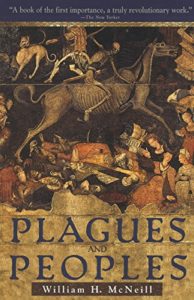
Pandemics exact a terrible human toll, but history suggests that they can also be catalysts for political and social renewal.
Liberal capitalism is bust. Post-liberal government will be the norm for the foreseeable future, according to John Gray, whose latest book is The Soul of the Marionette: A Short Enquiry into Human Freedom:
With all its talk of freedom and choice, liberalism was in practice the experiment of dissolving traditional sources of social cohesion and political legitimacy and replacing them with the promise of rising material living standards. This experiment has now run its course. Suppressing the virus necessitates an economic shutdown that can only be temporary, but when the economy restarts, it will be in a world where governments act to curb the global market.
A more fragmented world is coming into being that in some ways may be more resilient, he writes for the New Statesman:
It is only by recognising the frailties of liberal societies that their most essential values can be preserved. Along with fairness they include individual liberty, which as well as being worthwhile in itself is a necessary check on government. But those who believe personal autonomy is the innermost human need betray an ignorance of psychology, not least their own. For practically everyone, security and belonging are as important, often more so. Liberalism was, in effect, a systematic denial of this fact.

Source: Asia Research Center
But the world following the pandemic is unlikely to be radically different from the one that preceded it, argues Richard Haass of the Council on Foreign Relations. COVID-19 will not so much change the basic direction of world history as accelerate it. The pandemic and the response to it have revealed and reinforced the fundamental characteristics of geopolitics today. As a result, this crisis promises to be less of a turning point than a way station along the road that the world has been traveling for the past few decades, he writes for Foreign Affairs:
The pandemic is likely to reinforce (what the NED’s Journal of Democracy describes as) the democratic recession that has been evident for the past 15 years. There will be calls for a larger government role in society, be it to constrain movement of populations or provide economic help. Civil liberties will be treated by many as a casualty of war, a luxury that cannot be afforded in a crisis. Meanwhile, threats posed by illiberal countries such as Russia, North Korea, and Iran will still exist once the pandemic does not; indeed, they may well have increased while attention was trained elsewhere.
 Lenin said that certain events, like the Kronstadt revolt, “lit up reality like a flash of lightning which threw more of a glare upon reality than anything else.” They make you see all kinds of things that you wouldn’t otherwise see, notes Sir Richard J. Evans, the author of “Death in Hamburg: Society and Politics in the Cholera Years (1830-1910),” who recently gave a series of lectures titled “The Great Plagues: Epidemics in History from the Middle Ages to the Present Day.”
Lenin said that certain events, like the Kronstadt revolt, “lit up reality like a flash of lightning which threw more of a glare upon reality than anything else.” They make you see all kinds of things that you wouldn’t otherwise see, notes Sir Richard J. Evans, the author of “Death in Hamburg: Society and Politics in the Cholera Years (1830-1910),” who recently gave a series of lectures titled “The Great Plagues: Epidemics in History from the Middle Ages to the Present Day.”
Human society has always been subject to major epidemics, and has dealt with them in quite similar ways over the centuries, even over the millennia. Of course, human society itself has also changed the way in which epidemics work, Isaac Chotiner writes for the New Yorker:
William H. McNeill, the great world historian, wrote a book called “Plagues and Peoples,” where he made a powerful argument for the impact of plagues upon human society. Take the Black Death, for example, in 1349, which killed maybe half the population in Europe. The economic effects were absolutely profound, when you think of the labor shortage, for example—too few people to work the fields—and the change in social relations and social structures.
 In his seminal Plagues and Peoples, McNeill wrote:
In his seminal Plagues and Peoples, McNeill wrote:
It is always possible that some hitherto obscure parasitic organism may escape its accustomed ecological niche and expose the dense human populations that have become so conspicuous a feature of the Earth to some fresh and perchance devastating mortality.
Nations that are more successful at controlling the disease and minimizing fatalities will enjoy more social cohesion, while those that delay active measures to control its spread will see greater social stress, and a crippling of public faith in leaders and institutions, one observer suggests.
The Black Death – the bubonic plague of 1348 – reduced the population of some European cities by 80 percent, but it was also “a terrible but effective catalyst for social renewal.”
How do people react when the established institutions of church, state, and science fail to offer acceptable explanations for the occurrence of extraordinary levels of mortality? David Herlihy asks in The Black Death and the Transformation of the West. The pandemic “gave to Europeans the chance to rebuild their society along much different lines” and transformed what Herlihy called “modes of thought and feeling,” including a boost to Christianity.
 He argued that medieval Europe was “locked into Malthusian stasis, with a population unable to improve its standard of living and possessed of a set of unchanging and stagnating institutions,” one reviewer observed. “The Black Death was to shake Europe out of its immobile lethargy and to initiate processes of renewal.”
He argued that medieval Europe was “locked into Malthusian stasis, with a population unable to improve its standard of living and possessed of a set of unchanging and stagnating institutions,” one reviewer observed. “The Black Death was to shake Europe out of its immobile lethargy and to initiate processes of renewal.”
“A scarcity of workers following the drop in population created incentives for labor-saving technology, as the survivors among the poor insisted on higher wages. Guilds to which admission had previously been hereditary or strictly limited were forced to recruit more widely, from among the poor,” Joel E. Cohen observed in the New York Review of Books. “Many bequests from wealthy people who had died made possible the creation of new national universities. These newly founded schools weakened the monopoly on education previously held by the ancient universities of Bologna and Paris. Because not enough teachers in these new universities knew Latin, the use of vernacular languages spread.”
If the limits of growth are eventually accepted, it will be because governments make the protection of their citizens their most important objective. Whether democratic or authoritarian, states that do not meet this Hobbesian test will fail, Gray concludes. RTWT







